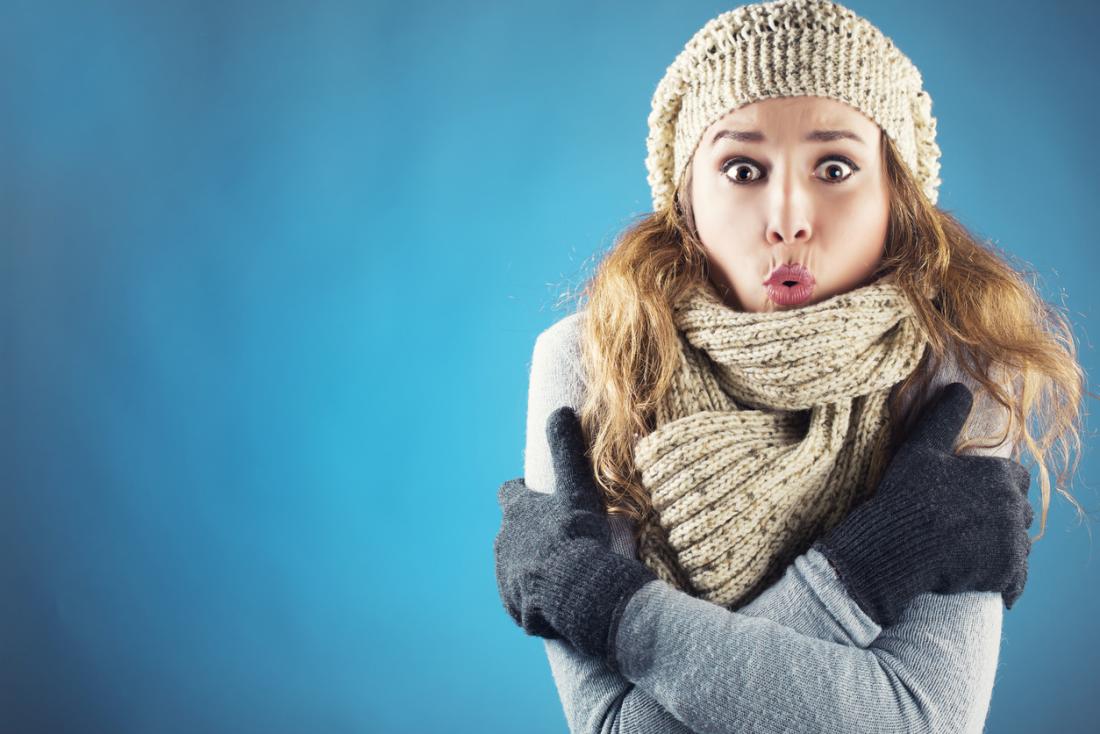Ever wondered why some individuals seem impervious to the cold, breezing through winter's chill while others shiver uncontrollably? The answer isn't as simple as "they're just tougher"; a complex interplay of genetics, physiology, and environmental factors determines our individual response to cold.
Its a common observation that people react differently to cold temperatures. Some seem perfectly comfortable in conditions that leave others bundled in layers. Several factors contribute to this disparity, starting with our genetic makeup. Research suggests that certain genetic variants can influence how our bodies perceive and react to cold. This means that some people are predisposed to feeling less affected by low temperatures, regardless of how low the mercury dips.
The role of skin pigmentation has also been a topic of interest. The idea that "white skin absorbs heat slowly but also loses heat slowly so it's good for cold region" is a simplification. While its true that skin pigmentation is an adaptation to different levels of sunlight exposure, the relationship between skin color and cold tolerance is more nuanced than a straightforward cause-and-effect. The adaptation is a result of evolution, with populations in colder climates developing lighter skin to better synthesize vitamin D from limited sunlight. Conversely, those in sunnier regions evolved darker skin to protect against excessive UV radiation.
- Carly Jane Onlyfans Leak What Happened Whats Next Latest Updates
- Gali Golan Leak Latest Updates Privacy Concerns Keyword
It's worth noting the observed phenomenon that "when black people live in cold weather their skin begins to whiten naturally," or that "white people have the reverse effect" is not accurate. While some degree of tanning and fading can occur with sun exposure, it doesn't fundamentally change a person's skin tone at a genetic level. The primary function of melanin is to protect against UV radiation; its role in heat retention is less direct.
The relationship between skin pigmentation and heat exchange is also a bit more complicated than it may seem. While it's often stated that "black skin gains heat rapidly but loses it rapidly as well," the rate of heat gain and loss is significantly more dependent on factors like blood flow, subcutaneous fat, and clothing. Sweating, for example, is a very effective mechanism for regulating body temperature regardless of skin color. The assertion, "If you are asking does the internal temperature of a black person in the sun get hotter than white people," the answer is no. Things like sweating regulate our temperature way too well for sunlight on skin color to make a difference between us.
There is a common stereotype, "Inferred from black people not seeming to like the cold as much," but that should not be basis of any judgement and could just be based off of a small and biased sample size. Ultimately, peoples reaction to cold weather has much less to do with their skin color than it does with other biological and environmental factors.
- Jackermans Mothers Warmth Chapter 3 A Deep Dive
- Movierulz 2025 Your Guide To Telugu Movies More Explore Now
Body composition is another critical factor. "Thinner people tend to get colder than heavy people" is a generally accepted observation. This is because body fat acts as insulation, helping to retain heat. People with less body fat have less insulation and, "As such, a smaller body tends to lose more heat, since it has less volume to compensate for a comparatively higher area," making them more susceptible to feeling cold. "And the smaller you get, the harder it is to prevent this heat loss."
"Older individuals often feel colder than their younger counterparts." Age-related changes in metabolism, circulation, and body composition can all contribute to increased sensitivity to cold. As we age, our bodies become less efficient at regulating temperature, making it harder to stay warm.
There are also some less obvious factors that can influence cold tolerance. For example, some studies suggest that "Oddly, married women seem to handle cold better than unmarried women." While the reasons behind this are not entirely clear, it may be related to hormonal differences or lifestyle factors.
It is important to remember that correlation is not causation, and it is difficult to make broad generalizations. For example, its a sweeping statement to suggest, "White people are white because they lived in colder climates and black people are black because they lived in warmer climates." While skin pigmentation is an adaptation to different levels of sunlight, reducing it to a simple equation overlooks the complexity of human evolution and migration.
Furthermore, studies that focus on specific groups can offer valuable insights, but it is crucial to avoid overgeneralizing. For example, it was found that "There was a statistically significant difference between black and white women, with blacks having 0.13 degrees c higher temperature." While this might be relevant in some ways, its just one small point of data and doesnt represent a final conclusion about all people. "We conclude that body temperature varies with race in older women" but that is only one detail to consider.
The skin condition known as "ashy skin" is often associated with dry skin on people with darker skin tones, and is defined by the phrase "ashy skin is another way to describe how dry skin looks on people with a darker skin tone." However, "No matter how you describe dry skin, it happens to people of all races and skin types." Proper hydration and moisturizing are essential for maintaining healthy skin, regardless of race or ethnicity.
The idea that some people are simply "tougher" when it comes to cold is also not entirely accurate. While psychological factors can play a role in how we perceive and respond to cold, our physical and physiological characteristics are the primary determinants of our cold tolerance. "Scientists have found a reason why some people never seem to get warm while others never seem to feel the cold: Some nerve cell receptors deep in the body are stimulated by signals other."
Its also important to be aware of conditions like Raynauds syndrome, "Raynauds syndrome, also called raynauds phenomenon, is a condition that causes some areas of your body usually your fingers to feel inappropriately cold and numb when youre." If "Youre outside on a chilly day, bundled up in layers, yet your fingers still feel icy, turning white or even blue," then "If you cant seem to handle the cold, you might be experiencing raynauds phenomenon."
When talking about race, it's important to remember that race is not a monolithic entity, for, "I hate these posts because white people isn't just one single group," and that "There are many types of white people, and some of them suck like in any other race." Also, "With that being said, some people in other race groups have had to suck it up to fit into white majority's opinions and standards and they suffered." Its crucial to be respectful and avoid making generalizations based on race.
Its also important to note the relationship between sunlight and vitamin D: "We need ultraviolet light to synthesize vitamin d," and if "If the sun is weak and a person has very dark skin, they may not get enough uv exposure under their melanin for this to happen." That is not to say "It's wasn't and isn't about maintaining body heat," as, "We have far better ways to do that (like clothing and shelter and fires)."
An anecdote from a coach is presented: "This is not an answer but a small anectdote. I coached a middle school soccer team for a few years in an almost entirely black school. One day whild dropping one of my players off he asked me coachdo white people get cold? it is always fun to learn about (and to get to dispell) stereotypes that you didn't even know existed." It is important to dispel stereotypes.
In addition, other groups of people such as, "A 1960 study on the alacaluf indians shows that they have a resting metabolic rate 150 to 200 percent higher than the white controls used" and "[14] aboriginal australians undergo a similar process, where the body cools but the metabolic rate does not." These details can not be overlooked.
Overall, there has been a lot of research conducted in this field, with results such as, "It is well established that a combination of factors, including ethnicity, may influence an individual's response to cold stress," as well as, "Previous work from our laboratory has demonstrated that when faced with a cold challenge, there is a similar response in heat production between caucasian (cau) and african american (aa) individuals that is accompanied by a differential response in core."
In conclusion, "People of lighter skin color are that way because of mutation and needing to be better able to convert the suns rays into vitamin d since they were in areas that got only a little bit of sun (the really cold areas)" and, "People of darker skin color didn't need that efficiency because they were closer to the equator and received more sun (the hot areas)."
- Trending Content Digital Marketing Your Guide To Going Viral
- Diva Flawless Onlyfans Leak What You Need To Know Stay Safe


